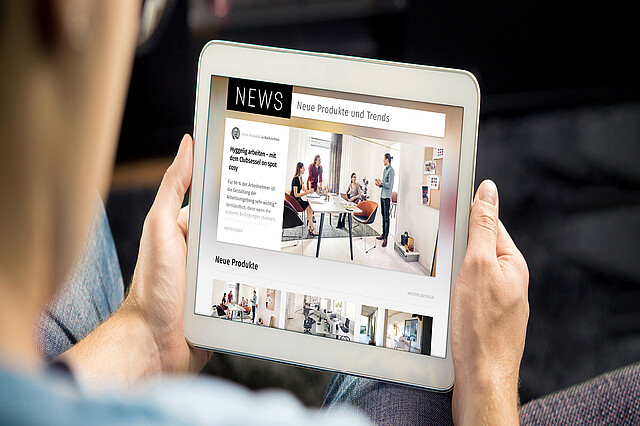Based on the knowledge gained from intensive collaboration with experts and decision-makers, Sedus INSIGHTS N°19 illustrates how thoughtfully designed workspaces promote cognitive and collaborative work and ultimately improves the quality of life of employees. The focus is on hybrid room concepts and workspaces for the age of multi-layered tasks with a strong focus on people-centric design. They transform offices into vibrant community spaces, increase productivity and create meaningful work experiences.
The focus is on human connections
The latest issue of Sedus INSIGHTS addresses the question of how hybrid forms of work are changing office design. As employees increasingly move between office and home settings, the demands on office space have shifted. Modern hybrid workspaces must not only be functional, but also flexible, prioritising employee wellbeing. This is where the concept of ‘hybrid common areas’ comes into play. These areas should not only serve as work environments, but also promote social interaction and collaboration.

Interview with expert Sophie Schuller
In an expert interview, neuroscientist Sophie Schuller discusses how workspace design influences well-being and performance. Schuller emphasises that traditional offices are often too minimalist and structured, which can lead to emotional disconnection. She advocates for biophilic design, integrating natural elements such as plants and sensory stimuli into offices. This improves employees' moods and cognitive abilities.
A particularly interesting point in the interview is the importance of physical collaboration. Schuller emphasises that social interactions in real space promote the release of hormones such as oxytocin, which strengthens trust and team cohesion. These neurophysiological responses are crucial for the quality of collaboration and cannot be replaced by digital tools.
Hybrid commons and the ductile office
A central concept in modern office design is ‘ductility’ – the ability of an office to adapt flexibly to different ways of working and needs without compromising its core identity. Hybrid commons, such as work cafés or arenas, are examples of spaces that support both collaboration and retreat. These areas not only promote productivity, but also increase employee well-being.
The ductile office is based on three principles: adaptability, integrity and interpretability. It is not just a workplace, but a space that adapts to the demands of the times, reflects the company's culture of the company and gives employees the opportunity to personalise their space.
To sum up, the office of the future is more than just a functional workplace. It is a place for encounters, for exchanging ideas and for creativity, where intelligent design and flexible spaces sustainably support collaboration and employee well-being.
Want to know more?
With the new format of Sedus INSIGHTS, we are emphasising our commitment to promoting innovation and excellence in modern office working environments.
You can subscribe to the latest edition here.



